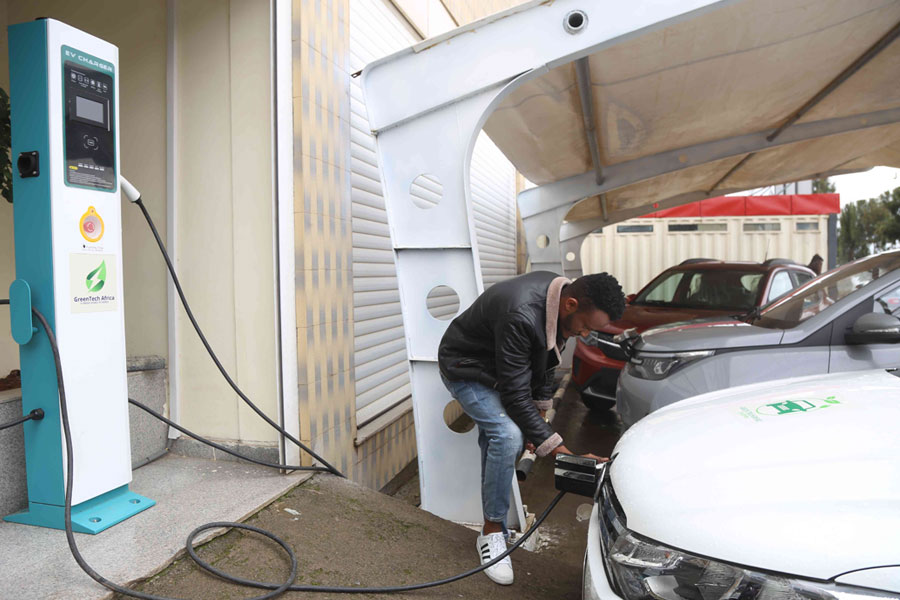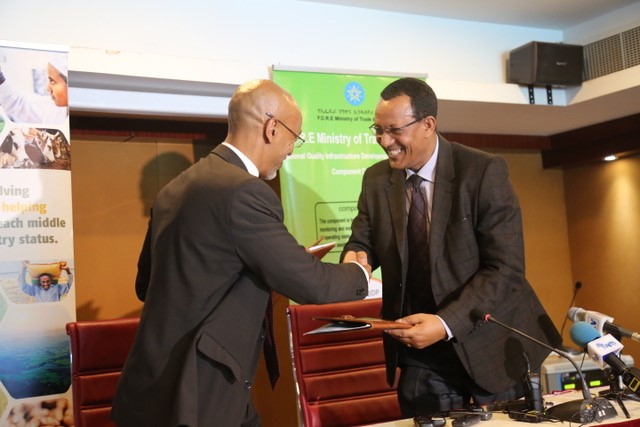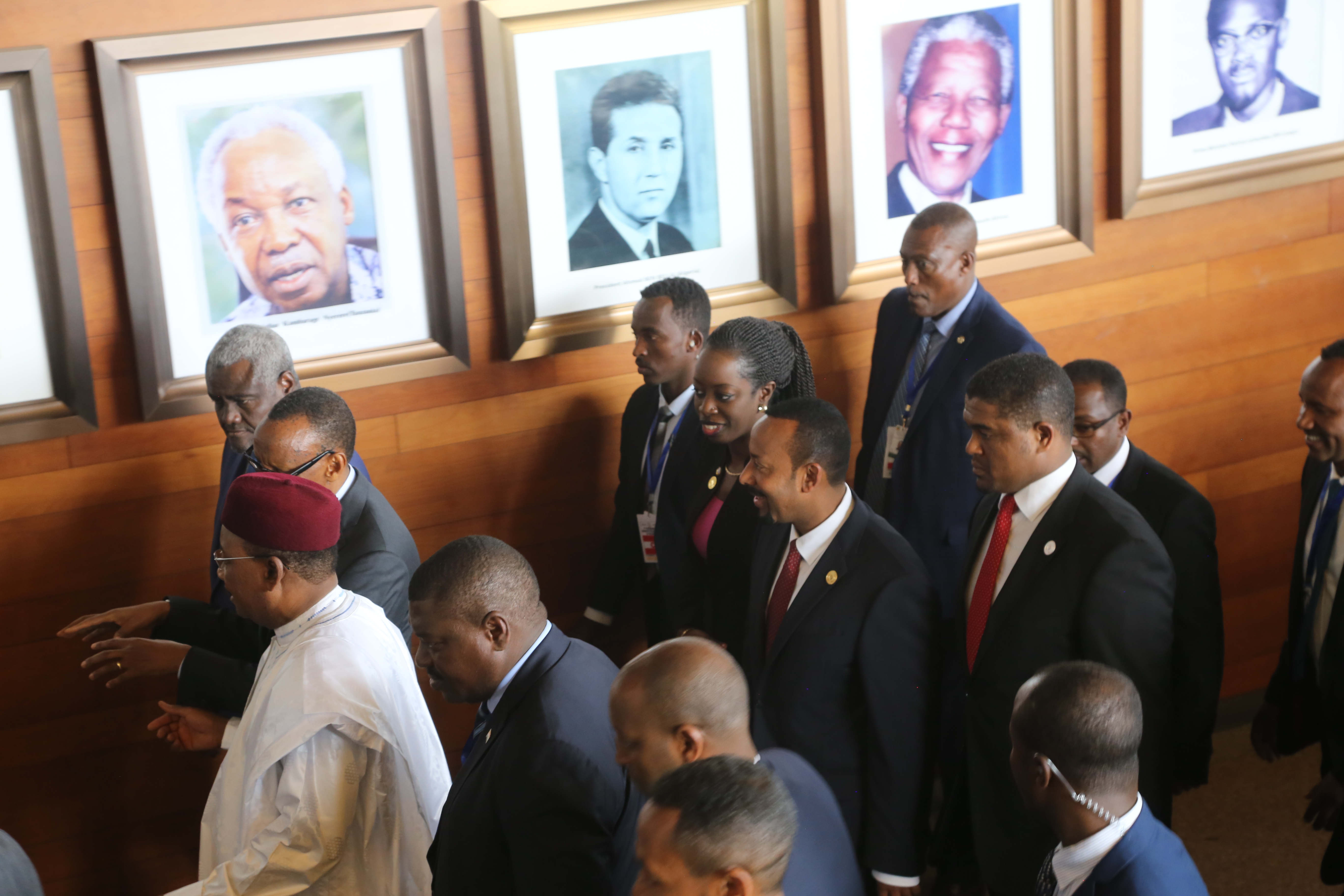
Viewpoints | Jan 19,2024
May 11 , 2019
By Hintsa Andebrhan
It is unfortunate how the democratic exercise of the last three decades produced more fragmentation, injustices and moral perversion of the youth than it addressed. It is just as worrying that we may be heading in exactly the direction set out previously despite the promises of the new administration in government.
We are seeing a dangerous political game playing itself out, as we have seen previously. It is one that is trying to disenfranchise a certain group in the name of addressing past injustices. It is evident on both sides of the political aisle.
This is a game that the incumbents have played impressively. From Emperor Haileselassie to the Dergueand the EPRDF, loyalty to a certain set of principles and ideals has spelled the difference between economic and political inclusion and exclusion.
For a little while, it seemed that this was a terrible habit that would be tempered by a political philosophy determined to be inclusive of all Ethiopians. But forces that have been instrumental in bringing the change in Ethiopia are now cutting alliances and are at each other’s necks. This is a dramatic repeat of what has occurred before, especially in the politically transformative years of the mid-1970s.
Three years of resistance against the EPRDF were tempered as a result of Prime Minister Abiy Ahmed (PhD), who appeared to be a symbol for a country in need of a uniting ideal. But the failure to protect innocent civilians from violence and displacement as well as an unclear position on a number of hot-button issues have dealt a blow to his popularity. This is an unfortunate development worrying to many.
Behind the political crisis of Ethiopia is an elite class at odds with itself. Everyone was too overtaken by the need to oust the incumbents, no one thought to ask what the future of this country should look like. What we are left with now is a political class unwilling to compromise with itself. It has contradictory ideas on a number of political, economic, cultural and historical matters.
Democratisation has been impossible to grasp in Ethiopia, because of an inability to have an all-inclusive compromise. We thought it would be different this time, perhaps because it seemed there will not likely be a second chance. Or because we are bad students of history and failed to see this coming a long way away when we gave our support to an unplanned political transition.
Fortunately, not all is lost. If we are sufficiently aware of the historical forces that have led to our current predicament, then it would be possible to address the challenges facing us today.
No golden bullet can save this country from disintegration or civil war. But the impulse and insistence to delegitimise those that have differing opinions as enemies of the state should cease. This is the rabbit hole from which we have been trying to escape since the dawn of modern Ethiopia.
If there were easy answers, we would have found them by now. What we require is a democratic culture and the forbearance to allow institutions to strengthen instead of trying to address every perceived injustice in one swoop.
The rule in Ethiopia’s politics seems to have a zero-sum mentality, where the gains of one is depicted as the loss of the other. The future is full of promises if greed for power can be stemmed and each group is willing to be accommodating of the other to a justifiable degree. Both of these are possible and should inform our politics going forward.
If we fail to do this, then it is proof that modern Ethiopia has always been a disaster waiting to happen.
PUBLISHED ON
May 11,2019 [ VOL
20 , NO
993]


Viewpoints | Jan 19,2024

My Opinion | Jan 07,2022

Fortune News | Feb 25,2023

Commentaries | Jun 21,2025

Radar | Sep 21,2019

Life Matters | Sep 21,2019

Radar | Jun 15,2025

Radar | Dec 14,2019

Fortune News | Jun 23,2019

Radar | Nov 27,2018

My Opinion | 131981 Views | Aug 14,2021

My Opinion | 128369 Views | Aug 21,2021

My Opinion | 126307 Views | Sep 10,2021

My Opinion | 123925 Views | Aug 07,2021

Dec 22 , 2024 . By TIZITA SHEWAFERAW
Charged with transforming colossal state-owned enterprises into modern and competitiv...

Aug 18 , 2024 . By AKSAH ITALO
Although predictable Yonas Zerihun's job in the ride-hailing service is not immune to...

Jul 28 , 2024 . By TIZITA SHEWAFERAW
Unhabitual, perhaps too many, Samuel Gebreyohannes, 38, used to occasionally enjoy a couple of beers at breakfast. However, he recently swit...

Jul 13 , 2024 . By AKSAH ITALO
Investors who rely on tractors, trucks, and field vehicles for commuting, transporting commodities, and f...

Jul 5 , 2025
Six years ago, Ethiopia was the darling of international liberal commentators. A year...

Jun 28 , 2025
Meseret Damtie, the assertive auditor general, has never been shy about naming names...

Jun 21 , 2025
A well-worn adage says, “Budget is not destiny, but it is direction.” Examining t...

Jun 14 , 2025
Yet again, the Horn of Africa is bracing for trouble. A region already frayed by wars...

Jul 6 , 2025 . By BEZAWIT HULUAGER
The federal legislature gave Prime Minister Abiy Ahmed (PhD) what he wanted: a 1.9 tr...

Jul 6 , 2025 . By YITBAREK GETACHEW
In a city rising skyward at breakneck speed, a reckoning has arrived. Authorities in...

Jul 6 , 2025 . By NAHOM AYELE
A landmark directive from the Ministry of Finance signals a paradigm shift in the cou...

Jul 6 , 2025 . By NAHOM AYELE
Awash Bank has announced plans to establish a dedicated investment banking subsidiary...